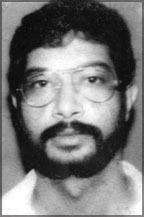Drama poses new questions on Richard's murder
A BBC documentary on Sri Lankan journalist and actor Richard de Zoysa
poses fresh questions about his brutal murder, 19 years ago, by
highlighting little-known facts about his links to a revolutionary group
involved in two bloody insurgencies, but is now the country's third
largest political force.
De Zoysa, forcibly taken away by a pro-Government death squad on
Feb.18, 1990 from his Colombo home, during a time when the government
was cracking down on the People's Liberation Front (JVP) insurgents, was
found dead on the beach the following day.

The BBC Radio drama documentary, titled 'The Last Time I Saw
Richard,' was aired on Nov. 28 but has received little attention in Sri
Lanka.
"No I haven't heard it," said a human rights activist, in a country
where most people watch local TV and listen to local radio.
The 60-minute play, based on interviews with those who knew and
worked with the Sri Lankan journalist, provides details of De Zoysa 'on
the run' from the armed forces because of his alleged links to
majority-Sinhalese rebels, hiding in New Delhi, India.
It brings out a shocking incident where a perverted policeman rapes
De Zoysa, a popular dramatist, actor and newsreader on State television.
"Richard was intelligent, handsome and articulate - and a homosexual
in a country where homosexuality remains unlawful. His charisma lit up
every room he entered. Intellectually and politically he was a
humanitarian liberal, rigorous with his socialist beliefs but never
partisan to any party ideology," says Roger Elsgood, producer of the
play, in a statement.
Local actors and those who were interviewed for the play quoted the
producers as saying the production is based on facts.
It also reveals De Zoysa's sexual identity more than what was
commonly known in Sri Lanka.
Pakiasothy Saravanamuttu, a well-known Sri Lankan political
commentator and a cousin of De Zoysa, says that because there is a
greater tolerance level and awareness in Sri Lanka about gays and
lesbians now, this information may not shock the average citizen.
De Zoysa's body was found washed ashore on the Lunawa beach near
Colombo. He had been shot in the head and his body had burn marks all
over. A correspondent and editor for IPS in Colombo, he was preparing to
take up an assignment with the news agency in Portugal at the time of
his death.
The murder, which shocked Sri Lanka and the world and drew
international condemnation, was a turning point in the bloody crackdown
on the JVP rebels.
At one point in the play, De Zoysa (played by a local actor) is told
by a young JVP activist: ''We have to persuade the students at the
university to take on the Government and death squads. Your family is
well-known and influential. This [influence] will help."
In another part, De Zoysa, while typing a story on his typewriter,
says: "If I get to Lisbon, I can get to tell the truth. If I stay here,
everyone will know my face."
Saravanamuttu, executive director at the think-tank Centre for Policy
Alternatives, agrees that the play could raise fresh questions and
revive debates about De Zoysa's disappearance.
Sunanda Deshapriya, spokesman at the Free Media Movement (FMM), says
while most journalists - at the time - were killed by JVP (because of
their affiliations to the state), De Zoysa was murdered by the State.
Apparently there were fears that his moving to IPS in Lisbon would
expose a dossier on State-sponsored killings.
Deshapriya said the emergence of the FMM and the demand for the
rights of the journalists came after De Zoysa's death because he came
from an elitist and middle-class background and the killing shocked this
society.
Four policemen charged with the De Zoysa murder were acquitted during
a long-drawn trial which ended in November 2005 on the grounds of
insufficient evidence.
Phrases like 'you are beautiful, darling', 'you are pretty boy' are
used by De Zoysa's close friends while talking to him, as depicted in
the play. In another scene, De Zoysa and his friends are bathing in the
sea discussing politics. Policemen are seen coming towards him,
prompting the others to run away and imploring De Zoysa to do the same.
"Having a swim, ah? I saw your indecent behaviour," the chief
policeman says and shouts to other officers to pin him down and hold his
legs. What follows are screams and sounds of groaning pain.
The play reveals that an offer was made to move De Zoysa to Belgium
where he could have been given political asylum.
A friend of the murdered journalist said the drama is valuable
because it portrays the fear psychosis that prevailed at the time.
"This fear was unimaginable. Young people would look over their
shoulder in fear. They would talk in whispers, go home before dark and
lock their doors," she said.
"The Government decided that the best way to terrify the JVP was to
slaughter young people and pile up their bodies,'' she said. "The JVP
wanted to terrify people and was also resorting to barbaric killings.
Nobody wanted to control it.''
IPS |

